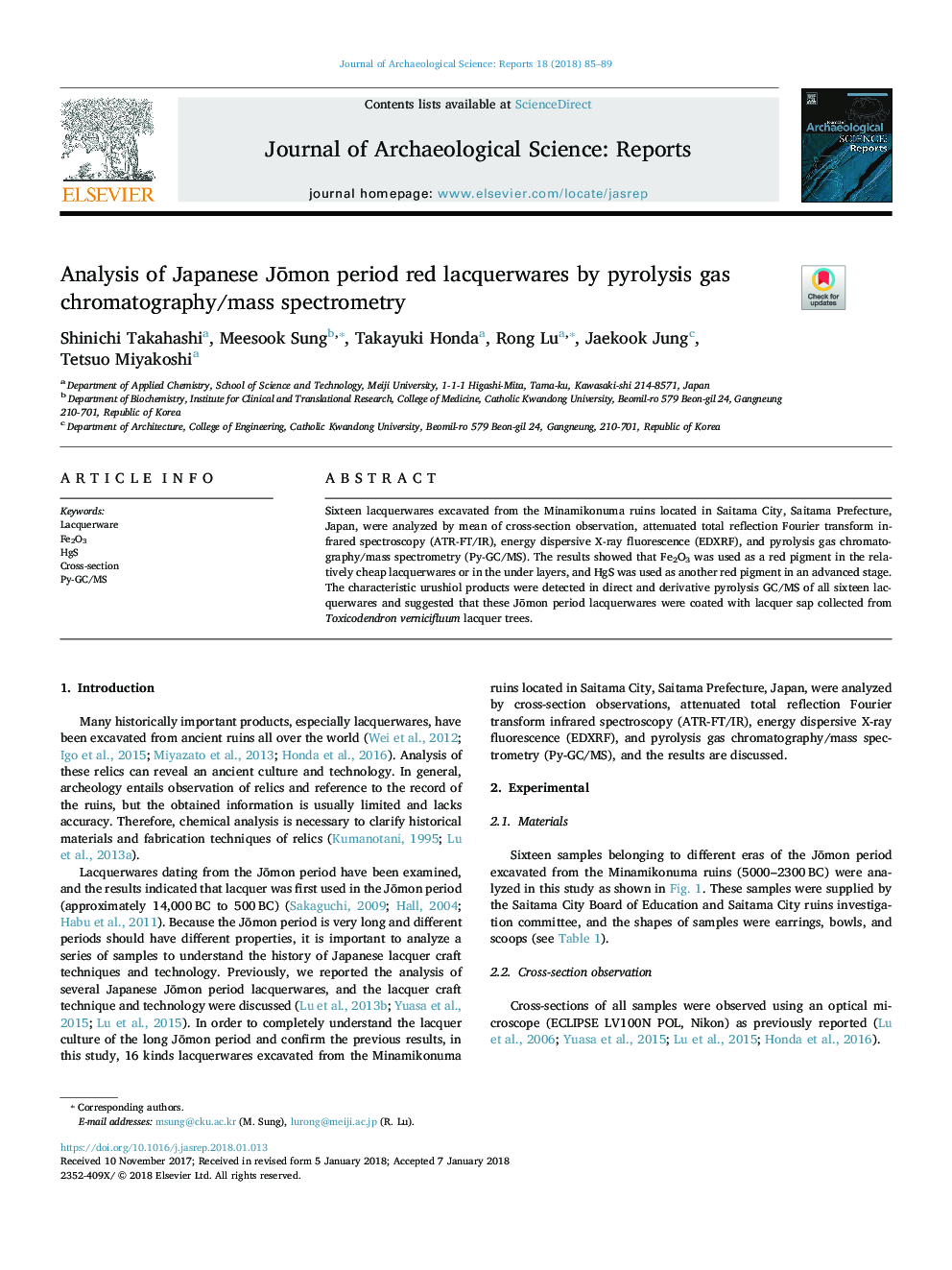| Article ID | Journal | Published Year | Pages | File Type |
|---|---|---|---|---|
| 7444698 | Journal of Archaeological Science: Reports | 2018 | 5 Pages |
Abstract
Sixteen lacquerwares excavated from the Minamikonuma ruins located in Saitama City, Saitama Prefecture, Japan, were analyzed by mean of cross-section observation, attenuated total reflection Fourier transform infrared spectroscopy (ATR-FT/IR), energy dispersive X-ray fluorescence (EDXRF), and pyrolysis gas chromatography/mass spectrometry (Py-GC/MS). The results showed that Fe2O3 was used as a red pigment in the relatively cheap lacquerwares or in the under layers, and HgS was used as another red pigment in an advanced stage. The characteristic urushiol products were detected in direct and derivative pyrolysis GC/MS of all sixteen lacquerwares and suggested that these JÅmon period lacquerwares were coated with lacquer sap collected from Toxicodendron vernicifluum lacquer trees.
Keywords
Related Topics
Social Sciences and Humanities
Arts and Humanities
History
Authors
Shinichi Takahashi, Meesook Sung, Takayuki Honda, Rong Lu, Jaekook Jung, Tetsuo Miyakoshi,
